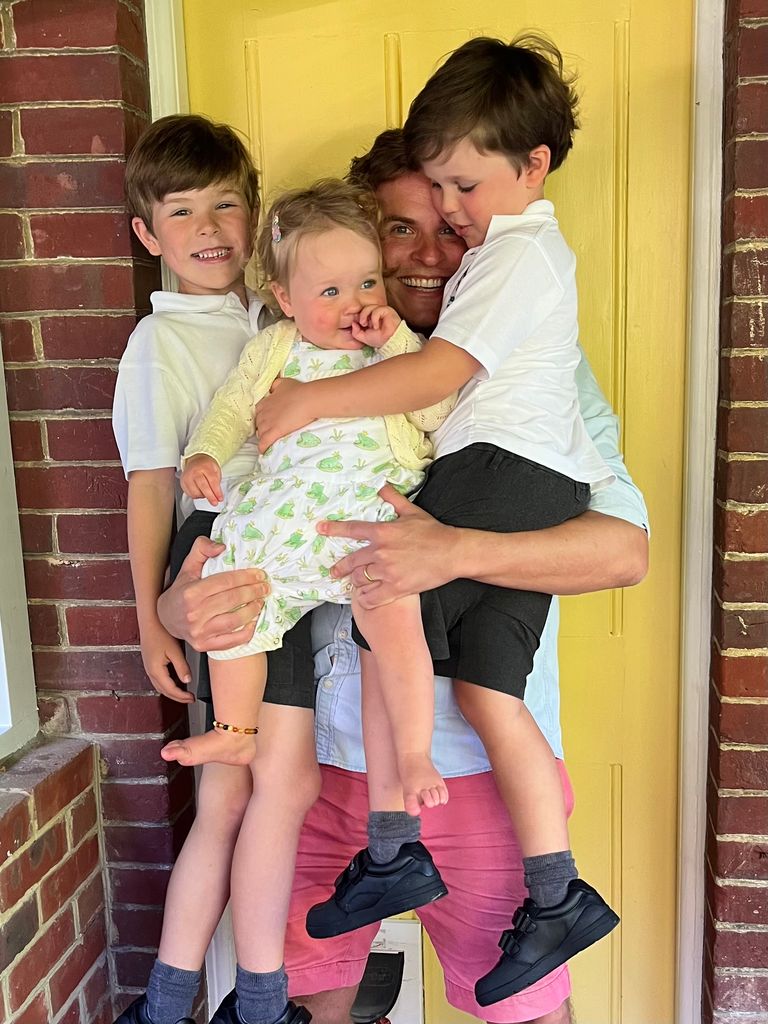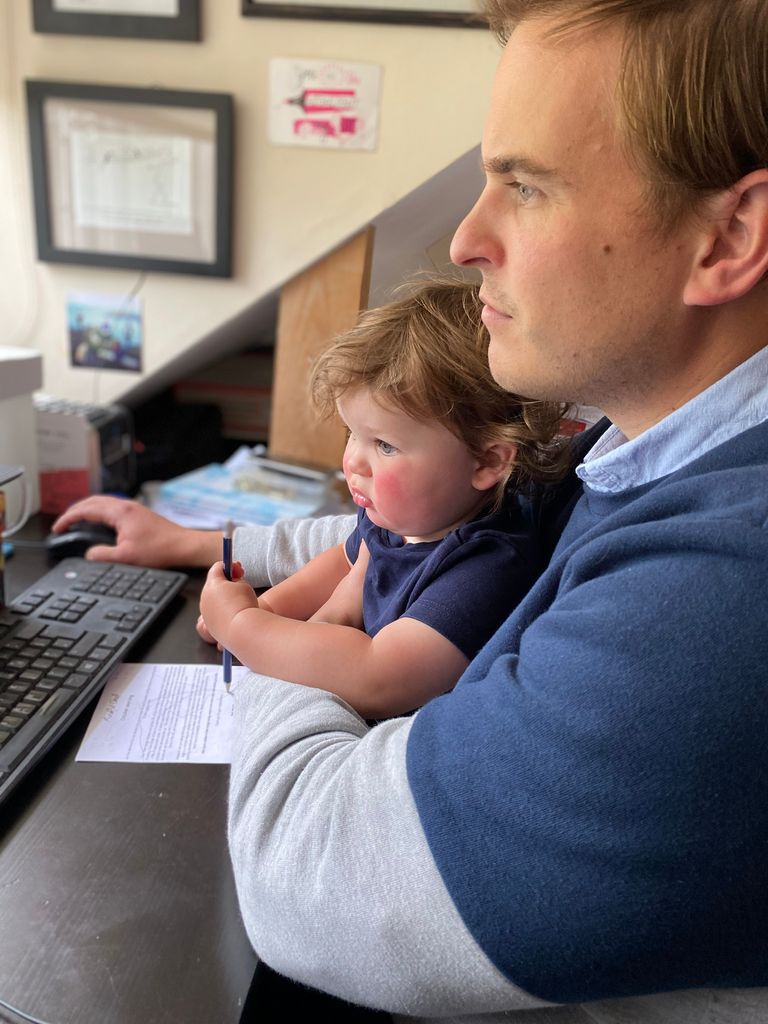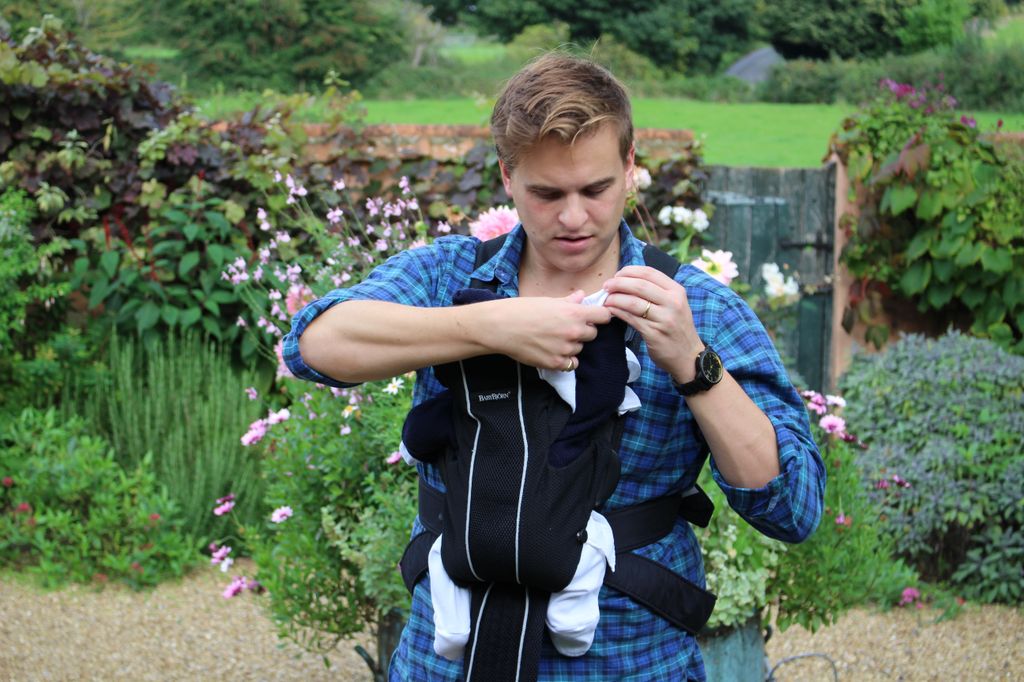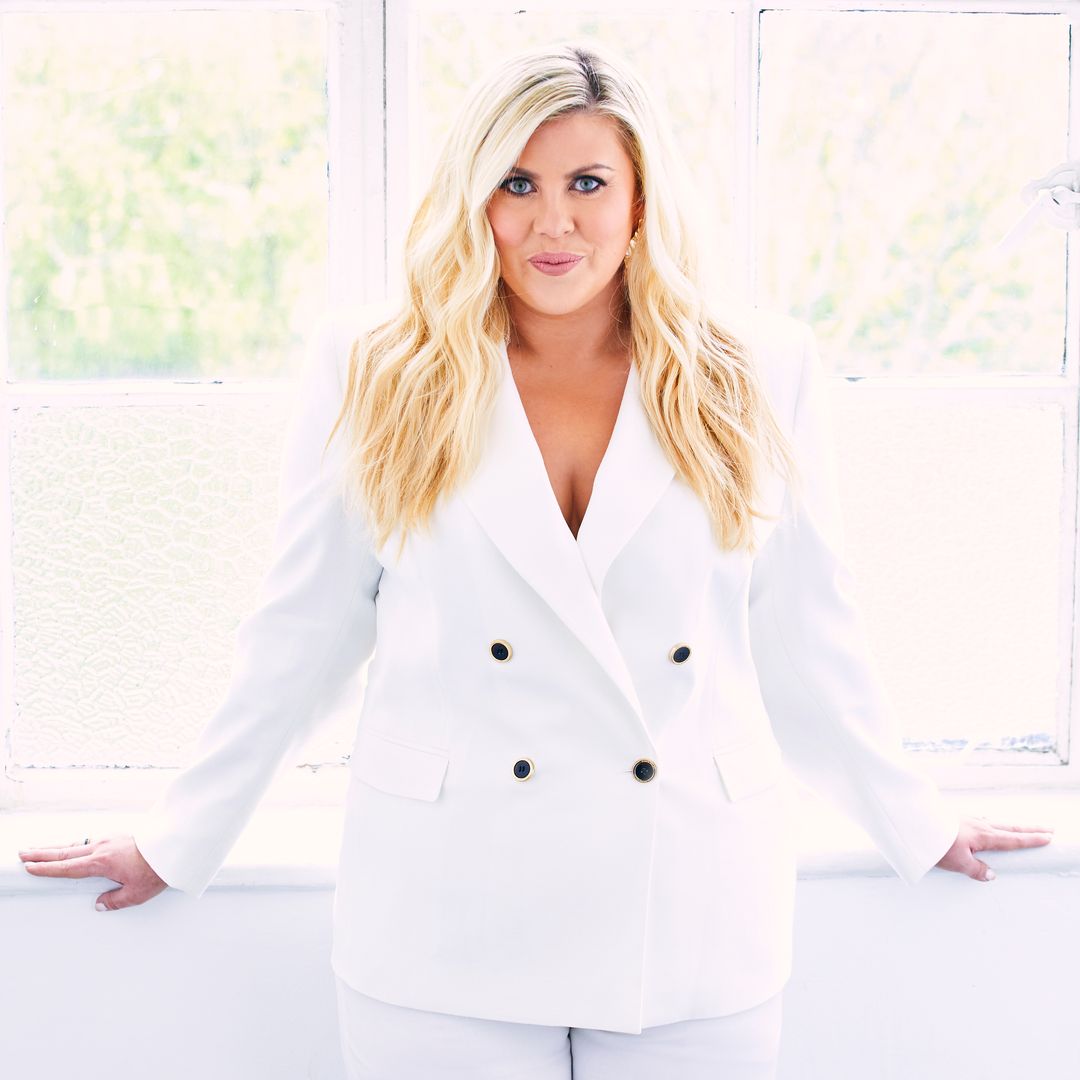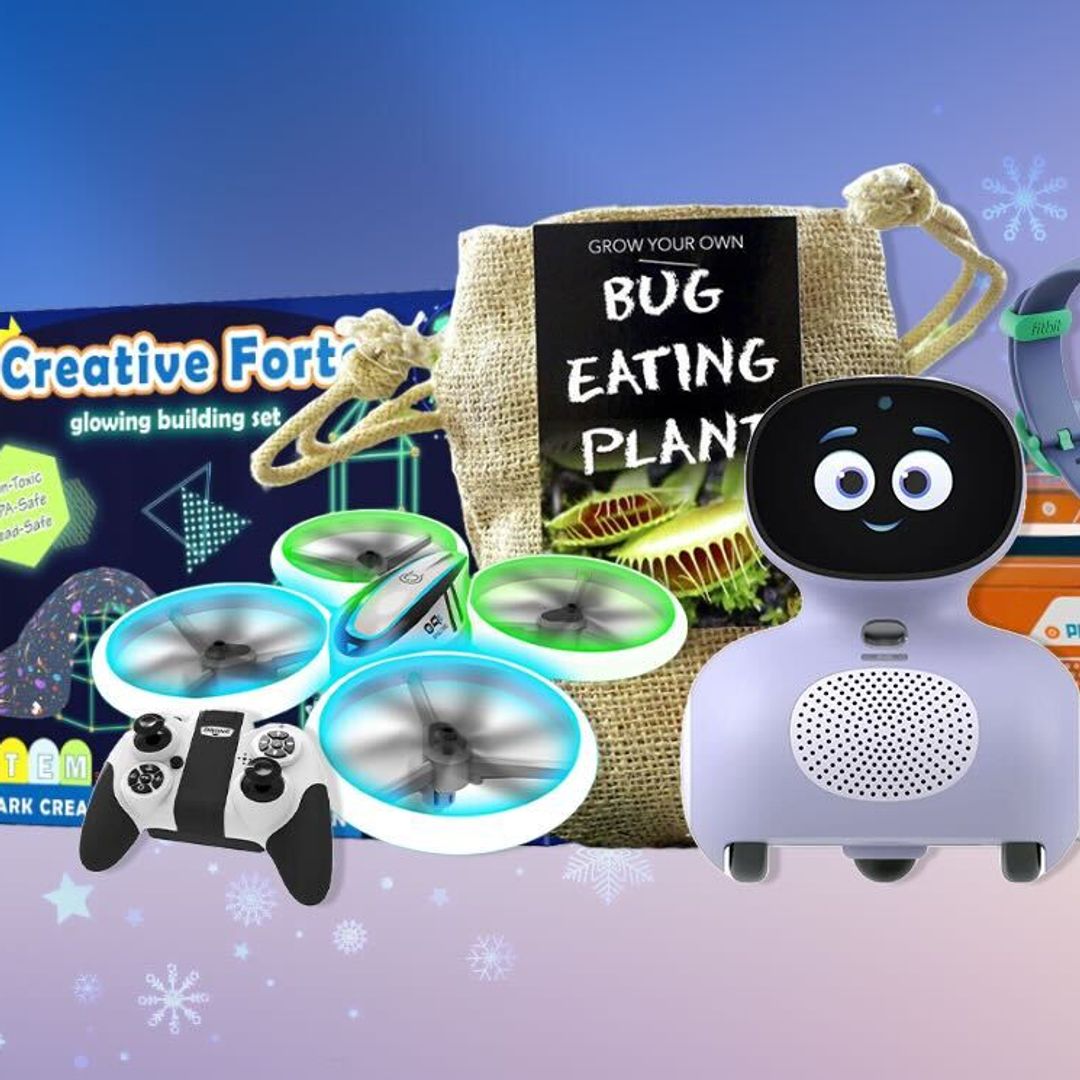We often hear stories of mums getting burnout from the heavy mental load they carry around every day caring for their children, as well as from the physically demanding nature of mothering and work life.
But now some dads are experiencing similar levels of exhaustion, juggling work, childcare and home chores, with very little time left for themselves. And as mums know all too well, if you don't take time for yourself, the hamster wheel of parenting can take its toll.
Here, dad-of-three Giles Alexander and author of You the Daddy: The Hands-on Dad's Guide to Pregnancy, Birth and the Early Years writes on the topic of paternal burnout and shares his tips on how new fathers can navigate modern day parenting.
Giles Alexander on paternal burnout…
Throughout history, the principal role of a father has been to provide, but, as times have changed, so too has what it means to be a dad.
As any working dad will tell you, being a father has never been more of a full-time job, and one that extends far beyond the traditional 9-5. Providing for your family now means so much more than merely bringing home the bacon.
Our job doesn’t stop once the monthly mortgage and gas bills have been paid. Our working day doesn’t end when our paid employment finishes and we head home. Bath time, nappy changing, weaning, potty training, cooking, cleaning and emotional support are all fundamental parts of the job description.
This isn’t to undersell the huge amount of work that mothers tirelessly pour into their families every single day (only a fool would ever suggest that men have the raw end of the deal here). Nor should this be read as any form of complaint. Far from it. For the vast majority of hands-on dads, we proudly carry our enhanced role in the family unit as a badge of honour.
But, as mothers have been saying for years (and as more dads are now realising), trying to juggle careers, relationships and the pressures of modern life, while being active, hands-on parents at the same time, takes a serious amount of energy, patience, effort and stamina.
For first-time parents, especially, it’s easy to become overwhelmed.
As your to-do list grows and with so many new responsibilities to manage, you have to make sacrifices if you want to keep on top of everything.
Staying up late to finish work or household chores, cancelling plans with friends, skipping the gym, and cutting back on things you enjoy. It’s a slippery slope. And before you know it, you’ll find yourself exhausted, irritable, mentally drained and at serious risk of burning out.
Indeed, the number of men who become depressed during their first year of fatherhood is double that of the general population, while first-time dads are significantly more vulnerable to postnatal depression than more experienced dads with multiple kids.
Because modern fatherhood is hard work. And the expectations our partners have of us and the pressures we put on ourselves are huge. Plus, as men, we aren’t always the best at asking for help or admitting when we’re struggling.
But burnout - defined as a state of physical and emotional exhaustion, usually caused by prolonged periods of stress and persistent physical or emotionally draining work - isn't something that should be brushed under the carpet.
If left unchecked, it can have serious repercussions on your health and wellbeing, leading to depression, loneliness, broken relationships, recurring illness and difficulties bonding with your child. And, once it’s taken hold, pulling yourself out the other side can be a long, uphill struggle.
For all these reasons and more, it’s important that all parents know and can recognise the early warning signs of parental burnout, both in ourselves and our partners. Only then can we self-diagnose the problem and make the changes we need to find the light at the end of the tunnel.
Early warning signs of burnout
- Feeling disengaged in daily life, whether at work or at home, with low motivation
- Short temper, feeling irritable a lot of the time
- Feeling disconnected from other people, or intentionally cutting off contact
- Not sleeping well
- Stuck in a rut of unhealthy eating and drinking
- No longer looking after your mental or physical health
- Poor immune system, falling ill more regularly than usual
- Feeling increasingly negative, cynical and overwhelmed
- Getting less enjoyment out of things you previously enjoyed
- Procrastinating and taking longer to get things done
- Feeling helpless, trapped or defeated
- Just waiting for things to get better without having a plan to improve them
- Physical symptoms like headaches, palpitations, shortness of breath and chest pains (go to your doctor if you experience any of these)
It's important to stress that, like all mental health challenges, parental burnout isn’t a personal failure or anything to be ashamed of. It’s far more common that most of us dare to admit, with most new parents experiencing it in some shape or form during the early years of parenthood.
But if you find yourself struggling, don’t just keep ploughing on as you are, hoping that things will get easier on their own.
Instead, make a plan of action, focusing on small, positive changes you can make to your daily routine to feel more like yourself again.
How to combat parental burnout
Prioritise sleep
There’s nothing better at recharging your batteries than sleep. In the early days of newborn life, clearly this is not in your gift. But, as your child gets bigger, and you aren’t being woken up every couple of hours during the night, try to prioritise sleep as much as possible.
While it’s tempting to stay up late to get things done or just have some wind-down time, head to bed instead, no matter how early it seems. Getting a proper night’s rest (ideally eight hours minimum) will do you the world of good and make you better equipped to face any challenge come morning time.
Get moving
If exercise has taken a back seat while you’ve been getting to grips with newfound fatherhood, carve out 30 minutes every day to do something active.
When we exercise, our body releases endorphins, triggering positive feelings while reducing stress, and there’s no better way to bring you out of a slump.
If you haven’t exercised for a while, don’t go in all guns blazing. It doesn’t need to be an intense gym session or full body workout. You can start small, with a walk, short jog, or some sit ups. Just try to do something every day so you get back in the habit.
Do something you love
When you spend your whole life working, prioritising everyone else’s needs before your own, it’s hard to find the time or energy to do much else. But, if you have a hobby or personal interest that makes you happy, relaxes you, or gives you a sense of achievement, don’t give it up.
Carve out some time – even just an hour a week – to keep this interest going and remind yourself that being a dad is just one part of who you are.
Technology detox
When you’re winding down in the evenings, or just have a few minutes to yourself during the day, try not to reach for your phone.
Mobile devices and social media are designed to be addictive, keeping you online, scrolling and staring at a screen for longer than you should, which does no favours for your mental health.
If you find yourself doing this a lot, set screen time limits on your devices as a reminder to put your phone down and re-engage with real life.
Don’t bottle it up
If you’re not feeling yourself, or constantly stressed, exhausted or overwhelmed, don’t keep it to yourself. Talk to your partner, meet up with a friend, or tell a colleague how you’re feeling.
Putting on a brave face and 'toughing it out' won’t make anything better. As the saying goes, a problem shared is a problem halved.
Remember me-time
No matter how difficult it might seem during this hectic time in your life, it's crucial that you carve out some time to look after yourself. Your partner must too.
Real quality time, to escape the routine and invest in your own wellbeing, so you can each come back refreshed, energised and more equipped to deal with whatever new challenges await you at home.
Because, if you’re constantly tired, stressed, and running on empty, you won’t have the energy to be the kind of parent you want to be.
When you’re run down, you’ll find yourself getting into arguments or falling ill more easily, as your body forces you to make an emergency stop. And worst of all, you’ll end up missing out on all the best bits about these early years with your kids, too knackered to appreciate just how special this time really is.
Giles Alexander is a hands-on dad of three and author of new parenting book You the Daddy: The Hands-On Dad’s Guide to Pregnancy, Birth and the Early Years of Fatherhood, £14.99 out now.


